Meet Your Second Brain: The Gut | The secrets of your second brain: Taking Control of Your Weight, Your Mood and Your Long-Term Health.

Every time you think, feel or perform a multitude of unconscious processes, the 100 billion neurons in your brain conduct signals to communicate and carry messages between them, ultimately creating, You and everything you do. It's the most complicated, essential and identifiable organ in the human body, acting as the center of the nervous system in all vertebrates. But what if how you think and feel isn't just controlled by the brain and central nervous system.
But in fact, A second brain that you didn't know about?
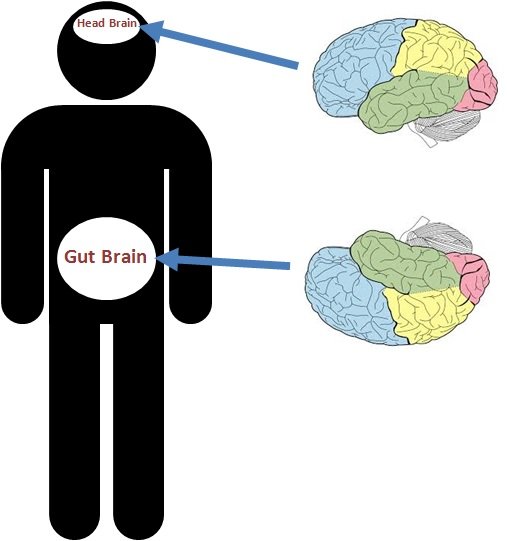
The brain uses the vagus nerve to connect and communicate with many parts of the body, including the vocal cords, heart, lungs and most of the digestive tract. It also uses this nerve to convey 'fight or flight' messages to the body, which explains why you might experience a cracking voice, racing heart, shortness of breath and a knot in your stomach when you're really stressed or nervous. But while this extensive network is constantly sending signals from the brain to your body, scientists have noted that 80-90% of the nerve fibers in the enteric nervous system are actually going from the gut to the brain.
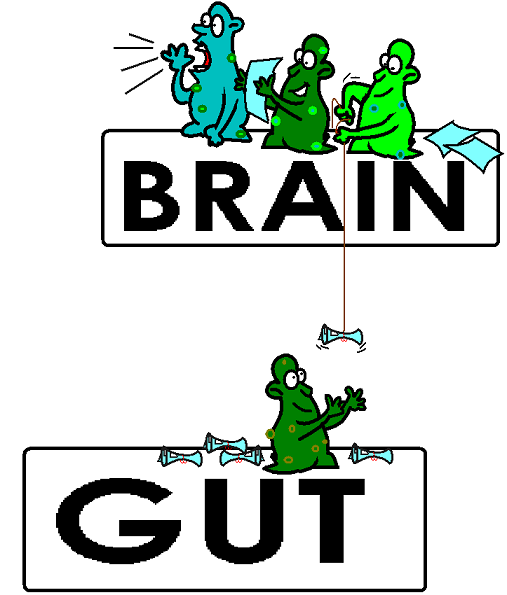
In fact, the enteric nervous system, which is an extensive mesh-like network of neurons that controls your entire digestive tract from the esophagus to the anus, doesn't even require the brain at all. When the vagus nerve is severed, the enteric nervous system is capable of organizing and initiating its own reflexes for digestion because it has such a complex collection of neurons. It is your second brain, and it controls you far more than you realize. From an evolutionary perspective before modern food safety protocols - our biggest were about eating.
Is it safe? Will it make me sick? Will it give me energy?
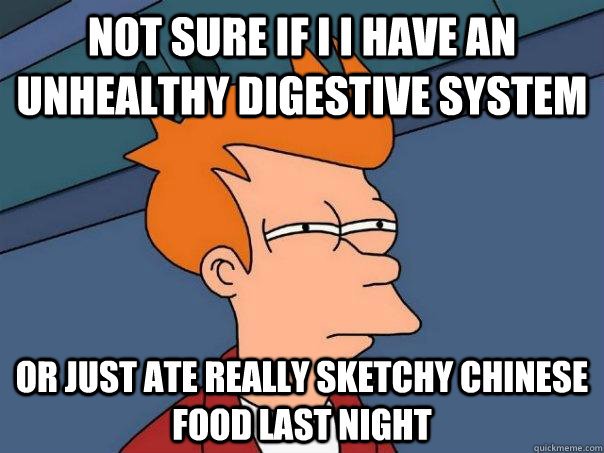
This is why we would need a direct line of communication between the stomach and the brain. For example, fat and sugar are good sources of fuel for the body, so we have evolved mechanisms to notify the brain to release the 'feel-good' neurotransmitter dopamine when we eat foods high in fats and sugars, which make us continually seek them out. But the enteric nervous system becomes even more interesting when you realize that the microbes in your gut actually produce over 50% of the dopamine found in your body, and 90% of the serotonin; two neurotransmitters that drastically affect your mood, happiness, and pleasure.
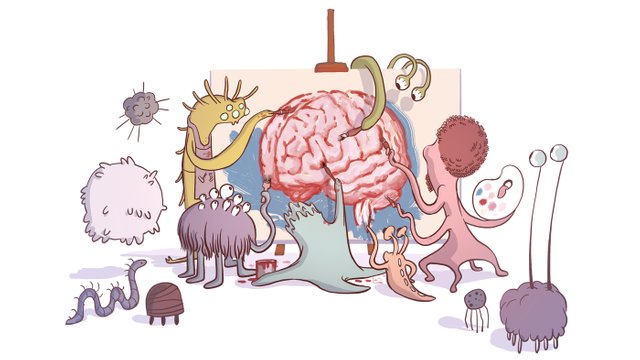
And these microbes can manipulate your cravings and eat behaviors for their own survival. Your diet affects which bacteria thrive, but as a result, the flourishing bacteria in your gut can then send signals to the brain via the vagus nerve to tell you to keep eating the foods they love. This is why some scientists have suggested that treatment with probiotics or fecal transplants could be an effective therapy for overeating; by getting rid of certain bacteria that generate intense cravings for high-fat and high-sugar foods.
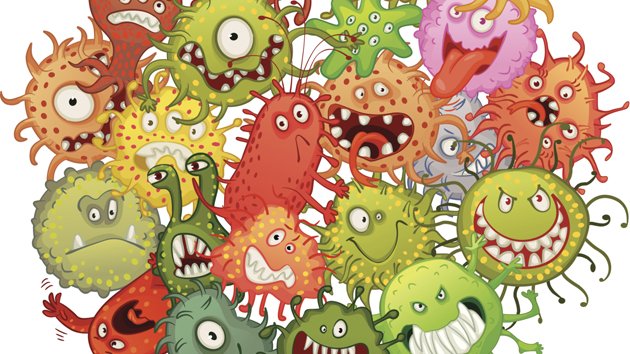
In fact, current research is pointing to a gut with healthy microbiomes as a strong predictor of emotional and mental health. Mice raised in sterile environments, where no bacteria could colonize their gut, exhibit social traits similar to those seen in humans on the autism spectrum. When researchers studied their brains, they also found significant changes in the levels of serotonin and specific proteins related to learning and memory formation. But after feeding the mice with specific probiotics to help cultivate healthy microbiomes, the symptoms were alleviated. Their gut controlled their behavior!
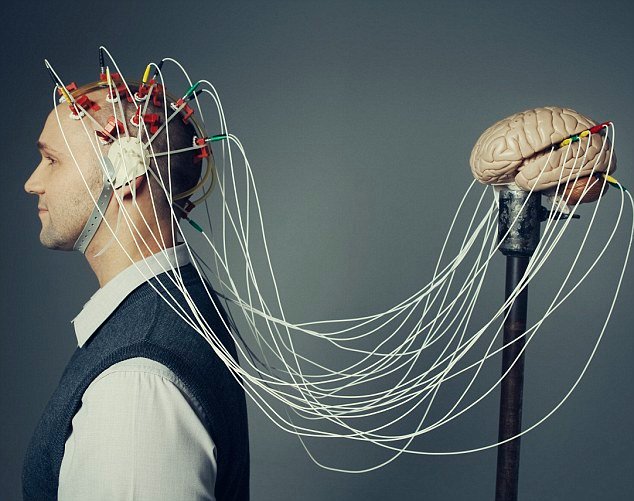
A 30-day study comparing people who ate probiotic yogurt found a decrease in the levels of anxiety and depression compared to people who consumed milk with no bacteria. And another study found that mice fed a specific bacteria had less stress-related hormones their blood and performed better on tests of learning and memory. But when researchers severed the vagus nerve, all of these improvements disappeared. Again, their guts were in control their emotions!
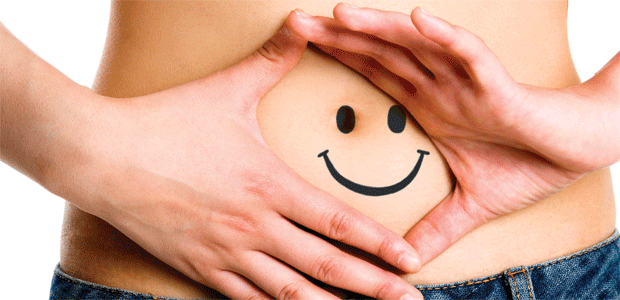
Studies have even shown that stimulating the vagus nerve at different frequencies, by implanting a small pacemaker, can help patients with treatment-resistant depression, by mimicking vagal nerve activity like a person with a healthy gut. And the essential role of the gut doesn't there. Given that large social groups increase the potential of one's genes being passed on - for both us and our bacteria - researchers now believe that the function of the microbiome is partly to promote pro-social behaviors. Healthy gut bacteria can lead to a higher resilience of negative emotions from others, which makes you more forgiving and better at fostering strong social connections, ultimately improving your shot at reproduction. All thanks to your second brain!
Image Credits - 1 2 3 4 5 6 7 8
If you enjoyed, Resteem and Follow me @masonmiler for more content just like this, and as always, take care of yourselves, and take care of each other :)
Our bodies are so complex! I've noticed whenever I am sick I tend to crave carbs! Not complex carbs either, just the ones that are pretty much pure sugar.
Thanks for reading. The human body is still a mystery. sometimes I just Binge watch my skin with the magnifying glass.
Good to know
Yeah but i think we still don't know about our body. Thanks for reading
Great read,
I think we still need to know more about how human body works
Thanks for reading and that's right we still don't know about our own body.
I have just been on a course of antibiotics. I am now piling in the probiotics ... even ordered some natto online, not too bad in a banana and yoghurt smoothie but hard going on it's own!
Thanks for reading maybe you like my this post too. It's about bacteria inside human body.
https://steemit.com/writing/@masonmiler/be-nice-to-your-germs-they-keep-you-alive-you-are-10-human-and-90-bacteria
I think this goes a lot further than we may want to believe.
Thanks for giving your time.
Great theme @mason. My singing teacher talked me much about pur 2nd and 3rd brain, for singing good, and this post explains it to me a bit more :P
Hablando del control y de los efectos del nervio vago sobre el cuerpo, te paso un enlace práctico si quieres oir al hipnoterapeuta Horacio Ruiz, la autohipnosis y la meditación se basan en las respuestas vagales del sistema parasimpático o autónomo. Como verás la respiración consciente es fundamental para todo esto.
https://www.ivoox.com/inconsciente-sabio-hipnosis-horacio-ruiz-audios-mp3_rf_1759374_1.html
Extremely true you can say that my this post is just an introduction of our second brain. Explaining everything in one post i don't think it's possible. Thanks for reading and giving your time.
Thanks for reading my friend @dresden. Singing teacher Rocks#
Nice piece, thanks @masonmiler
Thanks for reading.
Great read! Following you.
Thanks for reading and following. Followed you back
Thanks! 🙂